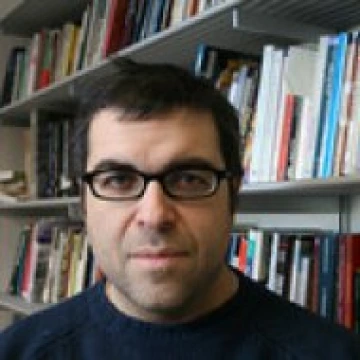José Esteban Muñoz
Wednesday, April 4, 2012
José Esteban Muñoz
2012 Miranda Joseph Endowed Lecture
5:30 pm / The Manuel Pacheco Integrated Learning Center (ILC) Room 140

What would a commons that included working class transgendered immigrants and queer punks and artists look like? Wu Tsang’s film Wildness (2012) tells the tale of an art project that attempted to catalyze just such a situation. Wildness resists many of the protocols of realist documentary. It narrates a the story of Los Angeles’s Silver Platter, Tsang and a group of other younger queer artists took over the bar’s less populated Tuesday night slot and hosted a party that featured edgy queer performance. The documentary tells the story of The Silver Platter through interviews with the bar’s proprietors, regular patrons and those who would become Tuesday night’s denizens. The film includes talking heads and performance documentation but also attends to the larger urban ecology that surrounds the space by including adjacent histories of anti-immigrant and queer violence.Wildness also features the bar itself as a speaking persona who narrates the ebbs and flows of brown life that traverse its walls. My analysis of the film is a launching pad for a more expansive consideration of a mode of brownness that is articulated not as a realist or empirical rendering of Latina or migrant experience, but, instead, a theory of brownness as a simultaneously singular/plural sense of the world. The paper makes the case that Wildness is a cinema of specularity that offers spectators an expanded materialist lens for a new consideration of the striving, conflicts and flourishing of people, spaces, objects and feelings that are vitally brown.

